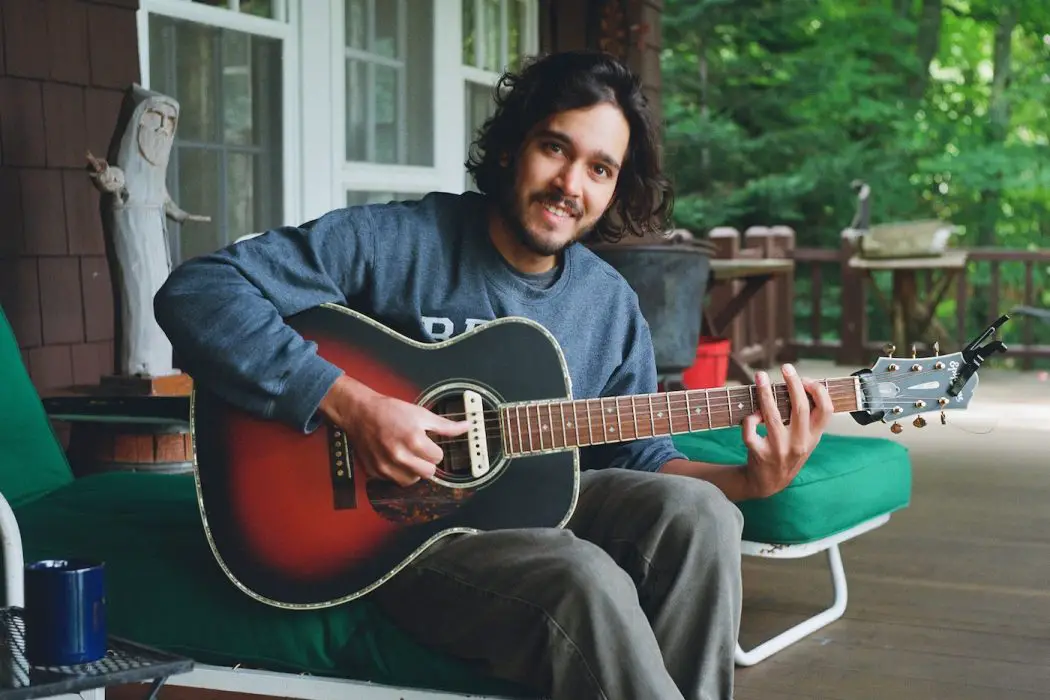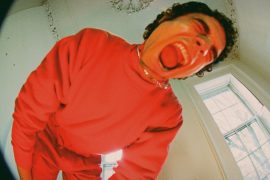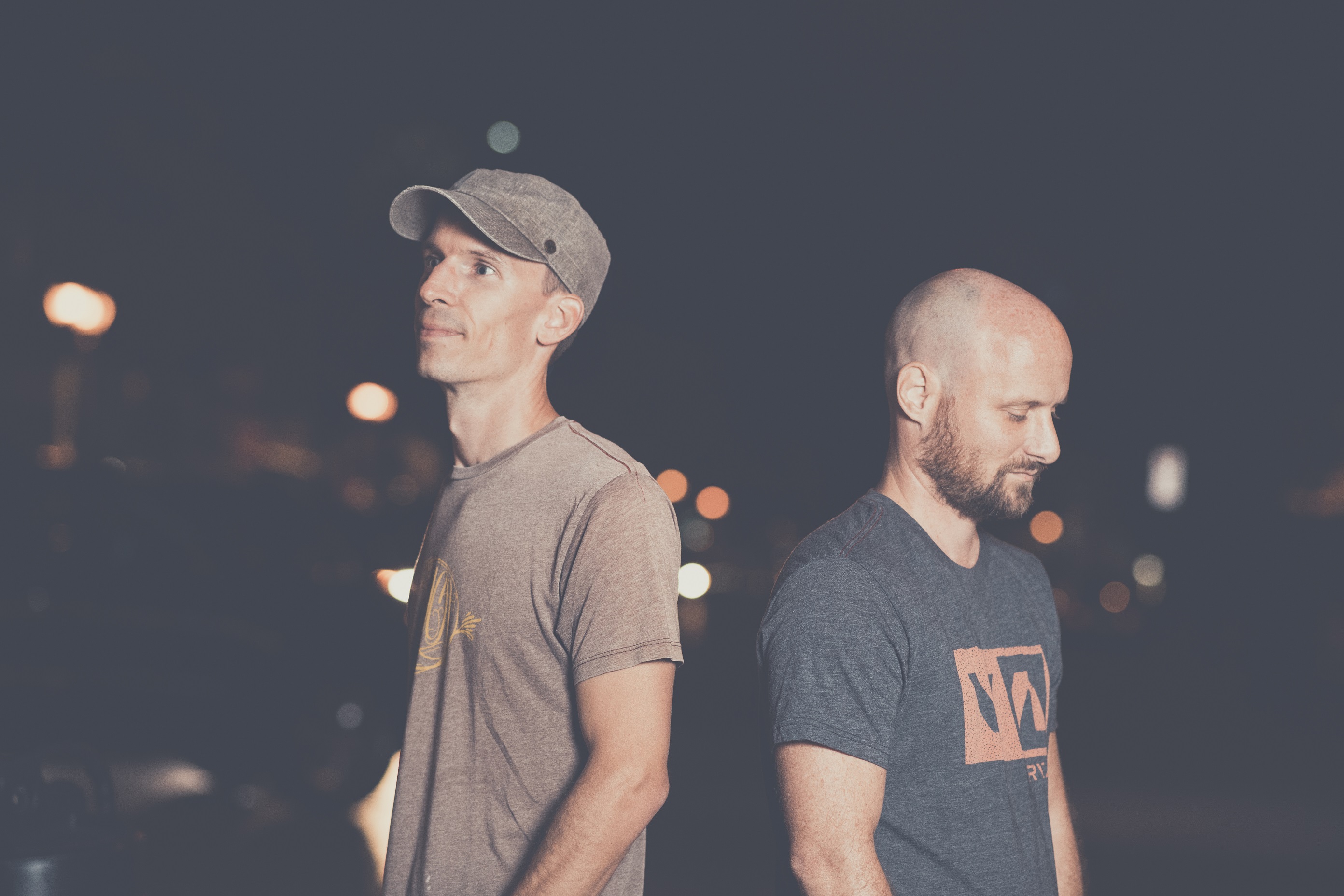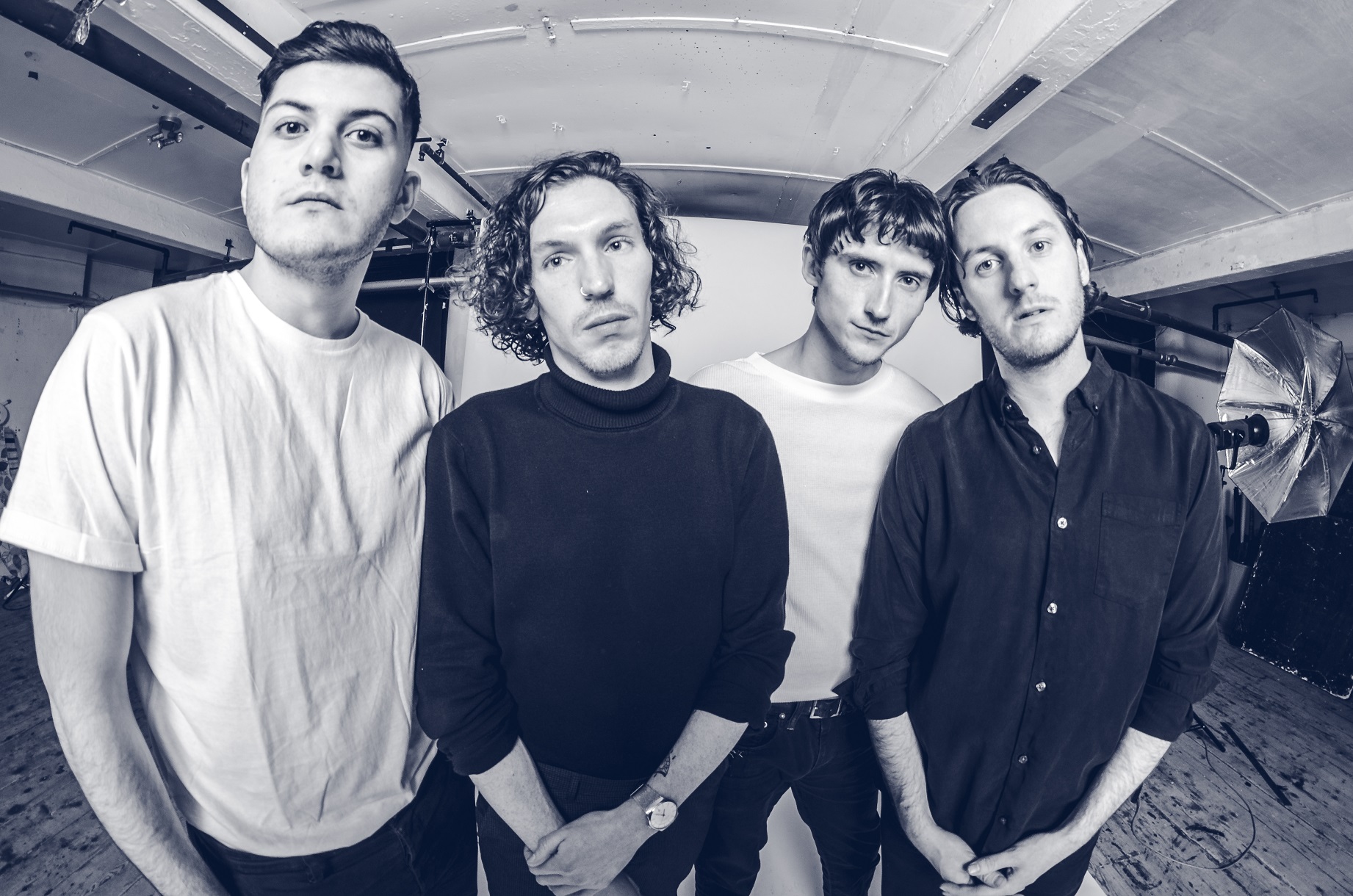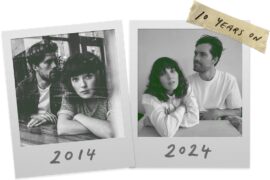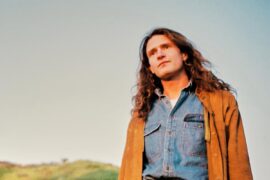Unfiltered, honest, and hauntingly beautiful, Rama Gu’s debut album ‘The Garden’ is an evergreen oasis of intimate indie folk upheaval that aches in all the right ways.
Stream: “Good Egg” – Rama Gu
“Singer-songwriter” as a label has a lot of baggage attached to it, but there is something so unpretentious and wholesome at its core about someone picking up an instrument and plucking out a song of their own creation.
Vulnerability and truth lie at the core of Rama Gu’s debut album, making for an experience that is as sonically serene as it is emotionally turbulent. Raw, unfiltered, and hauntingly beautiful, The Garden offers an evergreen oasis of intimate indie folk upheaval that aches in all the right ways.
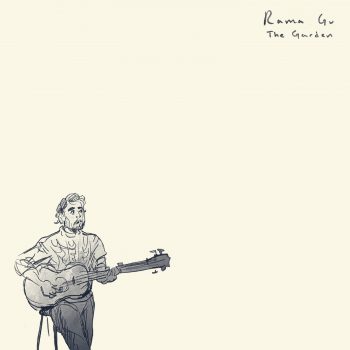
please forgive me, i fucked up again
i didn’t mean to act a fool with your friends
i very nearly pitched a perfect game
but the rain delayed my glory
i almost caught you having fun
but my big, dumb mouth kept on prattling on
giving voice to words that were best
left inside my head
it’s not enough to have good intentions
i gotta work to be the best that i can
a good egg
i just wanna be a good egg
i just wanna be a good egg
i just wanna be
Independently released November 6, 2020, The Garden is a compelling, if not heartbreaking introduction to Rama Gu – aka Brooklyn-based singer/songwriter Anders Kapur. A breathtakingly tender and nuanced soundtrack to memory and experience with special attention paid to space, intent, and lyricism, The Garden is both cathartic and unassumingly intense all at the same time. Kapur’s voice gently falls on sweetly plucked guitar strings that are often accompanied by a gorgeous array of instruments, including (but not limited to) drums, cello, violin, upright and electric bass, slide guitar, and much more.
In some ways, it feels like there are no rules: Every song that passes has its own sonic signature. Yet nevertheless, The Garden holds fast as a singular, cohesive entity: Through harmony-laden highs and near-silent pauses, Kapur and his friends take their audience on a journey that ultimately looks inward upon the self.
“A lot of these songs are thematically based around memory: both the hazy emotional exploration of memory, and projecting the subconscious anxieties that those memories provoke into the future,” Kapur explains.
Speaking to the album title, he notes, “Gardens are perennial. They bloom in the spring and die for the winter, but they always bloom again. They’re tranquil places for sure, but they also wither and die without constant care. So there’s something about impermanence and memory in there, but also the idea that the cycle will come around and life will go on if you keep moving forward. I think those are themes that are found throughout the tracks on the album.”
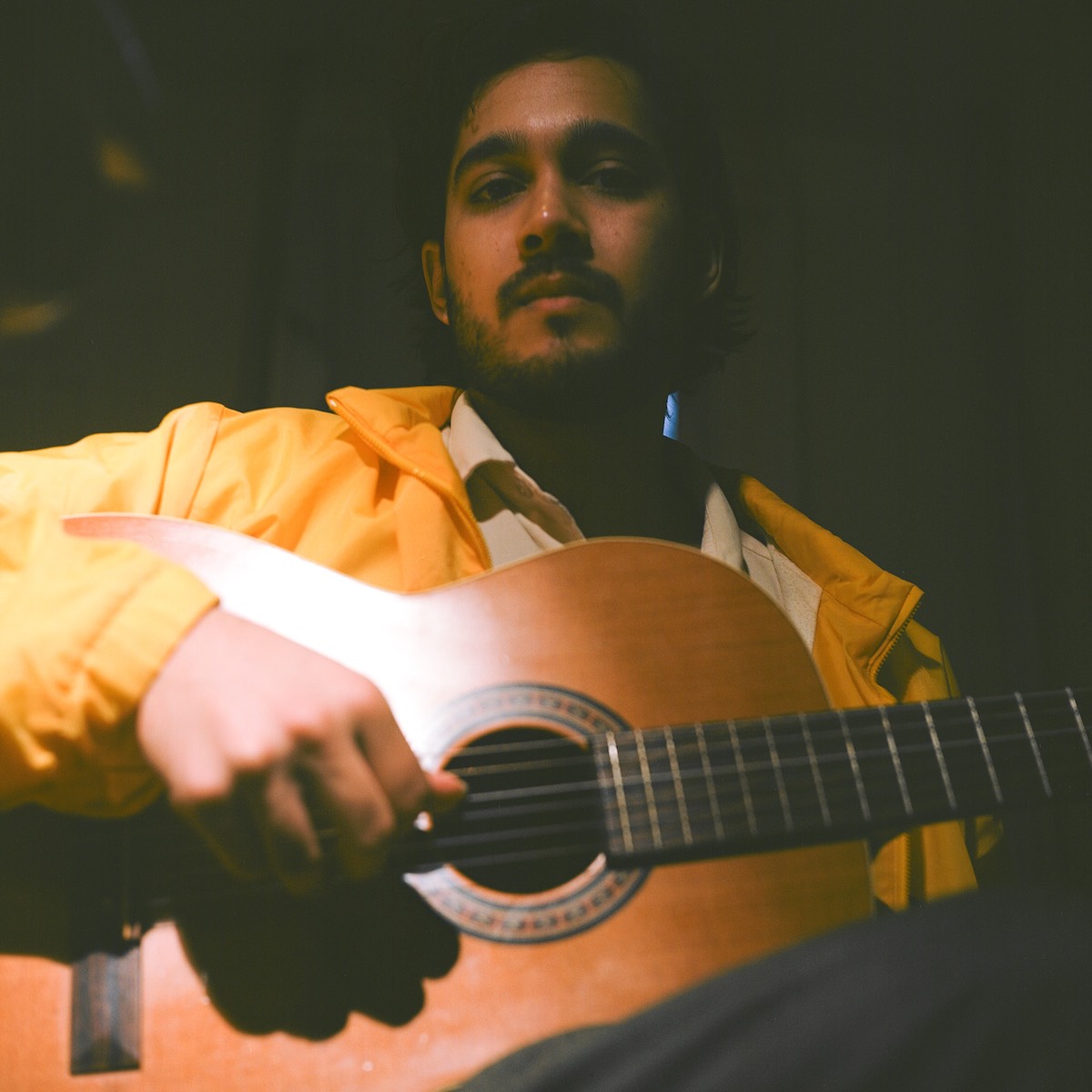
A singer/songwriter at heart, Kapur’s journey was far from linear – yet ever since he debuted with his Optimist EP last September, the artist has found not only his voice and his community, but a groove that he can call his own. He cites an artist residency program as playing a pivotal role on his creative identity and career trajectory:
“‘Singer-songwriter’ as a label has a lot of baggage attached to it, but there is something so unpretentious and wholesome at its core about someone picking up an instrument and plucking out a song of their own creation,” the artist reflects. “Especially when you are in the midst of writing or workshopping something, sharing a song with others requires a lot of humility and acceptance of failure. Seeing the unconditional support and lack of judgement amongst the participants of this residency changed my whole perspective on making music. I started to access levels of my creativity that I didn’t know I had, simply because it erased my fear of failure.”
Fast-forward to 2020, and Rama Gu’s The Garden is a buoy in the raging, ravaging storm that is COVID-19. Like some kind of musical life-preserver, this album comes to us with songs that capture an unadulterated human core – full of fragility and self-doubt, diving deep into our connections with others and with ourselves. He holds nothing back – delivering a truth that is refreshing, if not painful in its own right at times. Consider the poignant lyrics to “The Cost of Living”:
came out into the world
with a few friends and a degree
spent all my cash on it
but no one’s hiring
told us we’d keep rising up and up
trophies, ribbons, medals, love and such
even though we’ve been kicked in the shins more than enough
they just keep beating us up
dollars and dimes and cents
it’s been a while, where you all been?
finally on time with the rent
but the check bounced back again
being alive is a goddamn expensive feat
sharks salivate at the smell of my bleeding being
and the smaller the fishes the louder they promise some sort of relief
they found my skin tone threatening
now we’re facing down catastrophe
exxon wanted more money
now we’re dealing with a boiling sea
did anyone once even care for us?
all the old guard playing us for chumps
even though we’ve been kicked in the shins more than enough
The artist has started any number of conversations through a single track, reflecting on corporate greed, racial prejudice, economic struggle, and more. And yet, the top of the following track “I Wanna Grow Up” immediately reminds us why life is worth living – its jazzy, soft lilt giving Kapur and co. space to embrace the subtleties of their respective instruments:.
another day has come and gone
yet the dark will turn to light
the earth will spin itself around again
until we’re unstuck from the gravitron of life
i’ve been to south america
i’ve been dumped and i’ve cried
but there is so much more
that i’d like to try
i wanna change the way i dress
i wanna get myself out of debt
i wanna hit it big with my band
i wanna someday be a dad
i wanna see how the world ends
i wanna cook with you and sing
i wanna grow up
but i can’t do everything
Rama Gu’s debut album gives its listeners a lot to unpack, but no matter how far you’re willing to dive into the music or the musician, your energy will be time well spent. Whether you’re wooed by the sublime presence and earnestness of the finale “Good Egg,” or wowed by the instrumental beauty of Rama Gu’s two “Viscera” songs, The Garden promises to entrance, move, and ultimately, delight.
“My biggest goal was to make something sincere, both in a songwriting sense and in a sonic one,” Kapur shares.
With The Garden, he has more than achieved this goal – and soon enough, he hopes to be able to perform his new music for audiences. When exactly that happens is more a question of public health than it is of his own excitement level, which is resting at an all-time high for the foreseeable future.
Get to know Rama Gu and dive deep into his debut album through Atwood Magazine‘s exclusive interview with Anders Kapur!
— —
:: stream/purchase The Garden here ::
Stream: ‘The Garden’ – Rama Gu
A CONVERSATION WITH RAMA GU
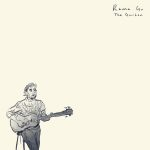
Atwood Magazine: Anders, I know your debut album is a very long time in the making. Can you share a little about the story behind this album?
Rama Gu: Absolutely! I would say it was a long time in the making mostly in the sense that it took some living to get to the point where I could produce something like The Garden. I went through a period of intense personal growth in late-2016, early-2017 when I was living in the Canadian Rockies and lucky enough to apprentice as a recording engineer at an arts institution called the Banff Centre. Banff Centre regularly hosts visiting artists for weeks at the time, and I got to work on some really cool, varied projects and see some incredibly high-level creative practice up close.
One of the last projects I worked on there before I left was a Singer-Songwriter residency with 30 participants and guest mentors that included some legendary Nashville songwriters like Kim Richey and Kevin Welch (who have written songs for megastars like the Dixie Chicks, Brooks & Dunn, and Garth Brooks) and Fats Kaplin, who was John Prine’s pedal steel player. I got to work in the studio under Howard Bilerman, who recored and played drums on Arcade Fire’s “Funeral” (and incidentally whose studio I recored “The Garden” in). Everyone involved in the residency made an effort to include us lowly apprentice engineers in their creative processes to an unprecedented degree. And since I was an amateur songwriter harboring dreams of making my own records, I really got to thrive and grow in this environment. I even got to participate in the sharing circles and play bass on a few tunes.
“Singer-songwriter” as a label has a lot of baggage attached to it. But there is something so unpretentious and wholesome at its core about someone picking up an instrument and plucking out a song of their own creation. Especially when you are in the midst of writing or workshopping something, sharing a song with others requires a lot of humility and acceptance of failure. Seeing the unconditional support and lack of judgement amongst the participants of this residency changed my whole perspective on making music. I started to access levels of my creativity that I didn’t know I had, simply because it erased my fear of failure.
Once that switch flipped, it was a matter of developing my craft further and further; integrating sounds and styles I vibe with, jettisoning the ones I don’t, practicing more, etc. When I moved back to NYC, I made some new, close friends who further fed into the energy. Two of them, Josh Chang (piano) and Charlotte Wang (cello), played on the record. Pre-COVID, the three of us would get together all the time to cook and jam on anything we felt like playing that night, from the Carter Family to Ke$ha to Chinese oldies. I made an EP called “Optimist”. Last year in 2019, I got to go back to Banff to participate in that same residency as an artist. Most of all, discovering Rama Gu was a process of letting myself be me—writing songs for myself and letting them sound how they sound.
So after about 3 years of letting the Rama Gu sound “gestate,” the album The Garden came together pretty quickly, actually. All the songs on it were written in 2019, and they’re really just my favorites from among the dozens of ideas and full songs I wrote that year. It’s a nice coincidence that there’s a lot of thematic consistency among them. Theo Munger (drums) and I started jamming the songs in December. Then, our small crew of 5 New Yorkers plus our amazing Montreal-based upright bass player Marika Galea recorded the bulk of the album over three January days at Hotel 2 Tango studio in Montreal, with my former Banff Centre recording practicum comrade and good buddy Shae Brossard behind the board. It was finished in about a week of overdub sessions in my apartment back in NYC.
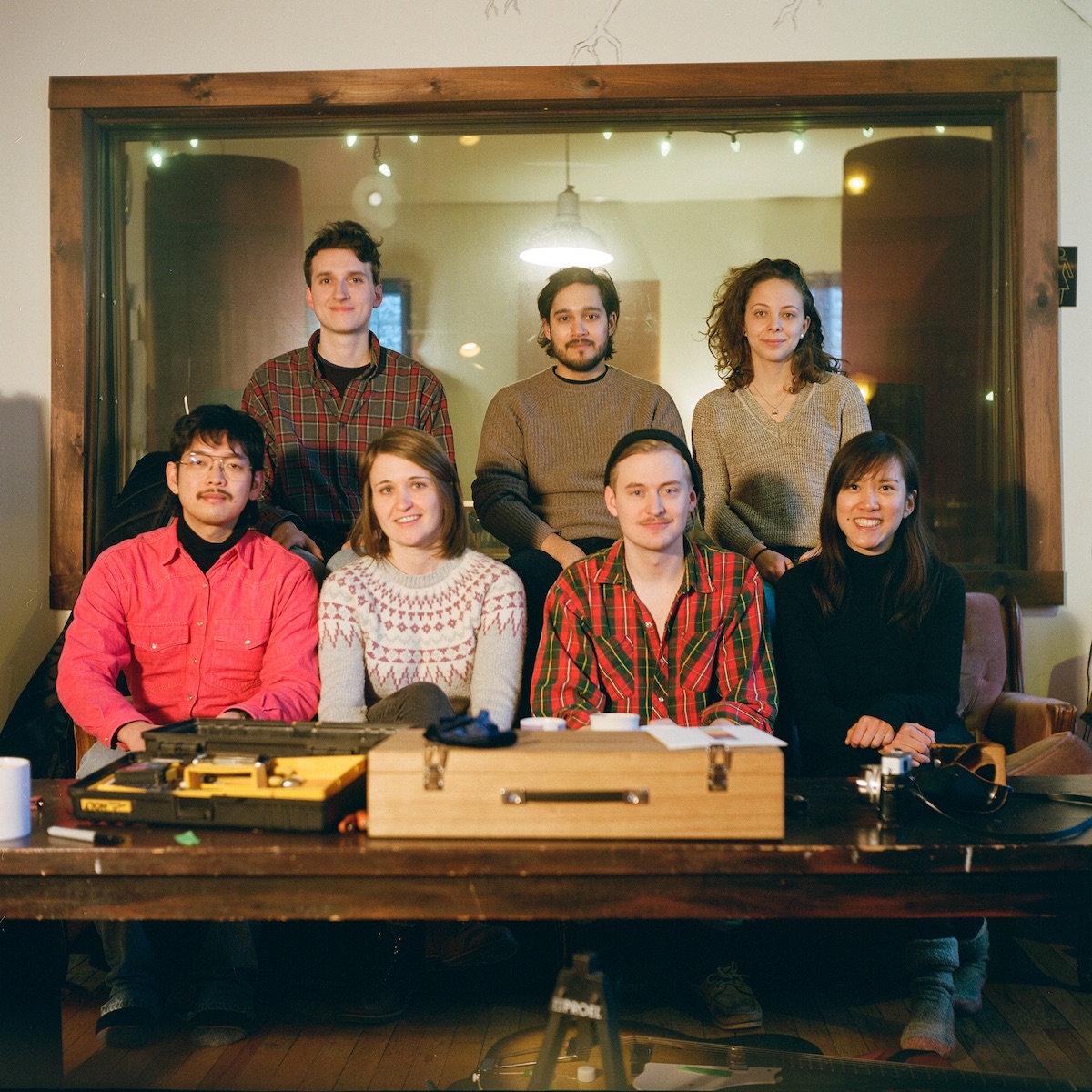
Why “Rama Gu”? What does this artist moniker mean and do you feel it drives the kind of music you make at all?
Rama Gu: Rama is a version of my middle name and Gu is the first two letters of my mom’s last name at birth. I don’t really like to think of it as a “persona” or a “moniker”—it’s more a way to add some distance between myself and the music while still being “my name”, you know? Ironically, I think having the added layer of a project name allows me to be a bit more candid in my writing. When I think about putting out music under “Anders Kapur”, there’s almost too much added pressure to stand behind the music 100% in my daily life. I like having that little bit of distance so I can separate myself emotionally from the project for a second if I need to.
I like having that little bit of distance so I can separate myself emotionally from the project for a second if I need to.
Could you describe this album in three words?
Rama Gu: I’m gonna use three words, but double up on two of them: It is what it is!
How do you feel this record introduces you and captures Rama Gu’s artistry?
Rama Gu: These days I view myself as a songwriter first and foremost. So I hope it introduces me as an honest songwriter, who captures his songs in an honest way. I did what I set out to do, now it’s up to others to either connect with it or not.
A lot of these songs are thematically based around memory: both the hazy emotional exploration of memory, and projecting the subconscious anxieties that those memories provoke into the future. There’s a lot of personal saudade to be found within the lyrics, but also I hope some universality. I wanna carry that universality forward into the future of Rama Gu. I hope more than anything that this record conveys an openness and playfulness despite the sometimes heavy themes. And in relation to the rest of my work as Rama Gu up to this point, I hope it represents an evolution that makes people excited to hear more.
I think of your music as some relaxed, funky blend of folk and rock. How do you define your sound / style?
Rama Gu: I think that’s accurate! I am tempted to describe our sound as “personal”. Everyone who played on the record brings a bit of their own personality to it, draped on the scaffold of the chords and lyrics I wrote. This off-kilter, transparent, vaguely jazzy folk-rock is I guess what happened when all the musicians channeled their individual influences to serve the songs. At their core, the songs are an eclectic mix of folk and pop songs, I think.
Who were your biggest influences growing up?
Rama Gu: Like many kids who were of impressionable age when “School of Rock” came out, I came into making music through idolizing the kinds of classic rock titans they make VH1 specials about. But I think the stuff I was passively exposed to by my parents had more of an effect on me, even if it really isn’t apparent in my current sound. Some CDs that were in rotation in the car at various points included Jill Scott, New Order, Joni Mitchell, Elvis Costello, and Todd Rundgren’s prog rock band Utopia.
I had an upright bass teacher named J. Brunka who introduced me to a lot of cool stuff and instilled a love of music in me in general, even if I was so lax about practicing that he didn’t realize it at the time. He introduced me to a band called Soul Coughing that I was totally obsessed with. I fucking love Björk and almost exclusively listened to her my last two years of high school. I also worked in a bookstore where I was in charge of selecting the in-store music from among a smattering of Putumayo CDs. I played the bossa nova one until it wore out, which was the gateway into a whole world of Brazilian music that I think has influenced my style in a lot of covert ways.
The thread through the influences that have stuck with me the most is that all of them have really unique points of view. None of them really sound like anyone else, or if they do, it’s only because people try to imitate them.
What was your vision going into this record? Did that change over the course of recording this?
Rama Gu: My biggest goal was to make something sincere, both in a songwriting sense and in a sonic one.
Obviously, there are tons of ways of approaching recording. Some people really get into the weeds of their tracks and make things sound perfect and amazing. But the approach I feel most connected to is this idea of sound recording as a document. It’s like taking a photograph, just a snapshot of a moment in time. For me, looking at recording in that way liberates the songs I write from their recorded representations, and forces me to write songs so that they stand on their own merits. And from the songs’ point of view, it’s important that they are allowed to live lives of their own, breathe, and evolve over time.
I always write with just guitar and voice. I had dozens of songs and ideas kicking around my head throughout 2019, and I’d continuously record demos of them and put them in iTunes playlists to feel out the flow. I brought a bunch of them to Theo to jam on in December, and we started discovering how they’d sound with percussion on them. Some were discarded because we weren’t feeling them. Some unexpectedly stood out! “Viscera” for instance, was basically a long-ish, wanky fingerpicking exercise, but we found we could really make it groove with the drums.
Initially, the plan was just for the two of us to go to Montreal to record with Shae, who suggested bringing Marika on board to track live bass with us. I asked Josh and Charlotte to come to Montreal last minute and they happened to be available. Then literally the week before we were about to leave, Emma Munger (lead guitars, Theo’s older sister) asked if there was room in the car to come along as well. So in the end it was kind of serendipitous that we had a full band up there!
Going into the sessions, it was really important to me that we record it quickly, without laboring over the details too much, and I had only booked three days. To that end, the vibe at Hotel 2 Tango and Shae’s energy in particular was really important. He has this way of recording that is very transparent, and he has a manner about him that makes everyone feel really at ease in the studio. We never felt rushed when we were playing even given the limited timeframe, and when the energy level would hit a lull it never lasted long.
Another complicating factor was that we had never rehearsed the songs all together—Theo and I were the only ones who knew them inside and out—which led to some cool, unexpected choices. For instance, we’d initially planned on electric bass for all the tracks, but Marika is an insanely talented jazz bassist and decided to bring her upright with her. It sounded so good that we stuck with upright for all but one track, and it lends the whole album a beautiful, open woodiness. Also, the “Good Egg” jam that closes the album was a spur of the moment choice. We were going to skip that song altogether because I’d already recorded so many versions of it, but it just felt so right to close out the session with everyone playing together live-off-the-floor. I don’t play an instrument on that track. I was bouncing around the studio with headphones on acting as bandleader and pointing at people to take solos, like Jack Black in the end credits sequence of School of Rock. It was fun.
In short, I just wanted to gather a bunch of friends together and have fun making an album. Producing it was mostly an issue of keeping everyone focused and giving them space to shine. The basic concept was, “Let’s get a bunch of people in a room and trust them be their musical selves, using my songs as an excuse to jam.” Because of the nature of how I wanted to create this album from the beginning, change was inevitable. I had no idea what I’d end up with, but I’m happy with how it came out!
Are there any songs you are most proud of here, out of the bunch?
Rama Gu: Haha – I think “Good Egg” is the best song I’ve ever written. It’s definitely the most universal in a way that almost feels like I didn’t write it at all. Like it fell from the sky fully formed or something. There’s a good interview with Annie Clark on an episode of Song Exploder where she says “New York” is “the first song I’ve written that I thought, ‘This might be someone’s favorite song.’ I’ve never had that experience before.” I kinda feel that way about “Good Egg.”
Of course, I’m proud of them all or else I wouldn’t have put them on the record!
The term “The Garden” elicits for me certain tranquility. What is the relationship of this album’s title to its lyrics?
Rama Gu: In the title track, “The Garden” refers to a prize-winning garden my maternal grandparents had at their home outside Princeton, NJ. Recording that song was very emotional. You can hear in the recording that I left in a mistake at the end of the track where I start to cry and flub a chord. Josh was the one who suggested after we completed the album that “The Garden” was the emotional center of the album and should be the title.
Gardens are perennial. They bloom in the spring and die for the winter, but they always bloom again. They’re tranquil places for sure, but they also wither and die without constant care. So there’s something about impermanence and memory in there, but also the idea that the cycle will come around and life will go on if you keep moving forward. I think those are themes that are found throughout the tracks on the album.
The two “Viscera” songs are very interesting; I appreciate their ambiance, their pure display of talent and passion, and how they connect the record’s two sides. Why this kind of instrumental transition? What are these songs all about for you?
Rama Gu: “Viscera” had its origin as a fingerpicking exercise I wrote for myself. I called it “Viscera” because I put a lot of blood and guts into practicing it. I brought it to Theo as kind of a throwaway, but we really found it grooved in a cool, fun way with percussion. His switching between double and cut time propels it along in a really compelling, intense way, and Marika’s upright bass gives it bounce and drives it home. It was initially a single song with an extended free time intro. Theo was the one who initially suggested splitting the intro and the back half of the track into a Part 1 and Part 2.
It’s interesting even for me how they’ve taken on another significance once it came to sequencing the album. Side A and Side B have distinct thematic vibes from my point of view. Side A is all about nostalgia and looking back on past events, whereas Side B deals with the here and now. I thought there needed to be some sort of palate cleanser after “The Garden”, which is lyrically so heavy. The quiet intensity of “Viscera, Pt. I” fit perfectly to lift the energy back up, and bridge into “Viscera, Part. II” which sets the scene for the angrier, sillier, more wistful songs of Side B. To me, they mark the passage of time between the two sides. In my mind they’re kind of like the score to a montage, grainy images from the past gradually accelerating their way up to the present day.
Stream: “Viscera, Pt. II” – Rama Gu
As a singer/songwriter, do you have any favorite lyrics in these songs?
Rama Gu: When I’m writing, I’m always focused on the overall effect of everything in context rather than individual turns of phrase. For that reason my favorite lyrics are in the song “The Garden” because it’s probably the song I feel emotionally closest to. I’m also happy with myself for managing to work “WQXR” into the song in a musical way. I’m curious which lines others will pick out as favorites, though!
picking us up after school
you’re flying out that night
i fall asleep on the long drive
sofie in the middle seat
izzy sad you’re gone a week
i don’t want you to come back
i’m not that allergic to the cats
waking up we have a peach smoothie
to start the day
at lunchtime we’ll put out a tray
pickles, turkey, bits of cheese
she keeps some root beer as a treat
he cleans his cameras falls asleep
this type of settled life suits me
the garden is a symphony
strings playing pastoral themes
potting roses in the garage
WQXR on
i cannot name the plants
the latin names all passed me by
but they’re known for it the county wide
my parents got married here
the rhododendrons in the air
right on these gazebo stairs
before we leave he poses us
for a photo there
What do you feel you'll take away from this album? What did that experience teach you?
Rama Gu: Making music is fun as heck, and I can’t wait for a time when it’s safe to pack half a dozen people into a recording studio so I can do it all again. I also feel like I’ve set the bar for myself songwriting-wise, and I am motivated to surpass it.
What do you hope listeners take away from The Garden?
Rama Gu: I hope it makes them cry. I hope some of the songs get stuck in their heads. But also most of all, I want people to listen to it and think, “Hey, I could make something like this too!”
— —
:: stream/purchase The Garden here ::
— — — —

Connect to Rama Gu on
Twitter, Bandcamp, Instagram
Discover new music on Atwood Magazine
? © Rama Gu
:: Stream Rama Gu ::

